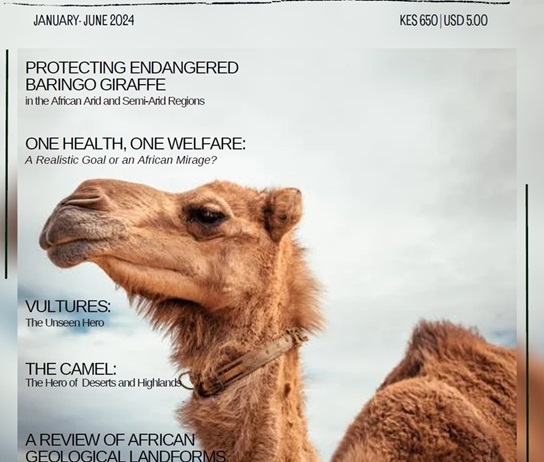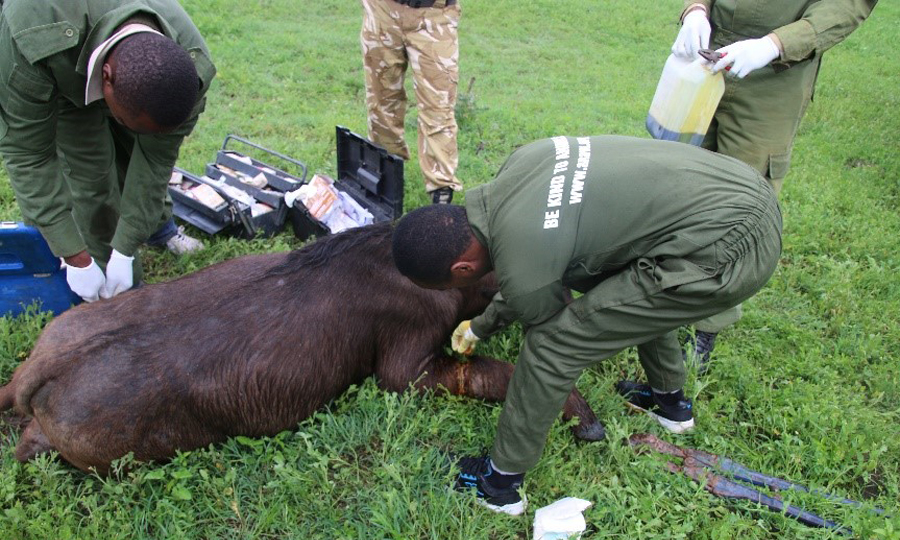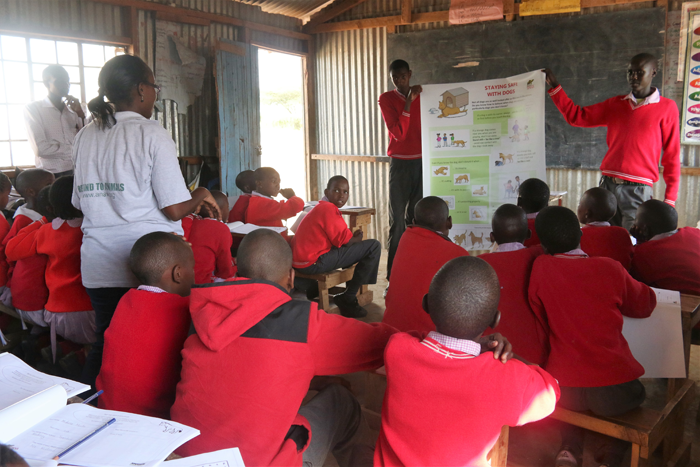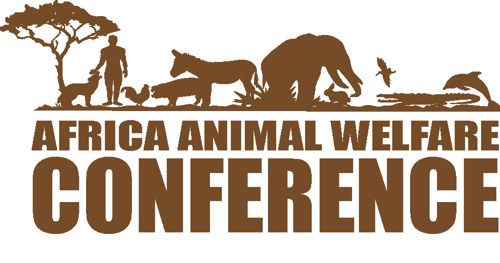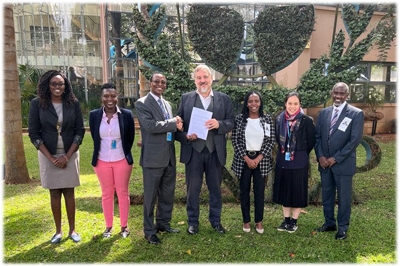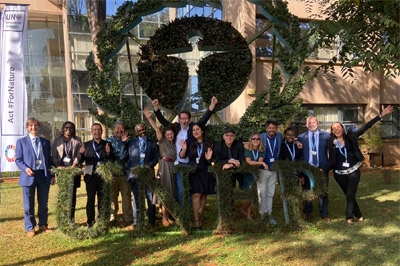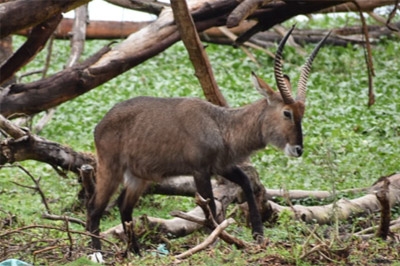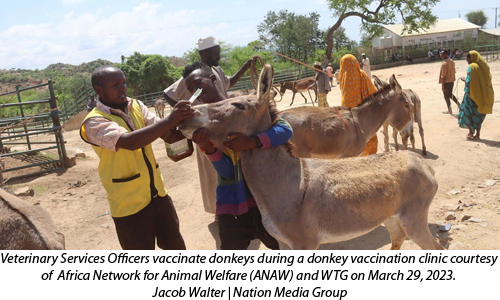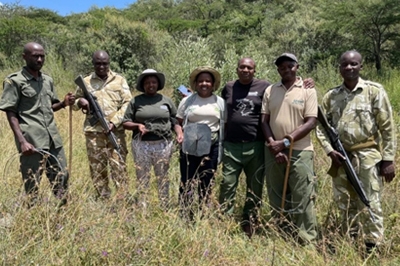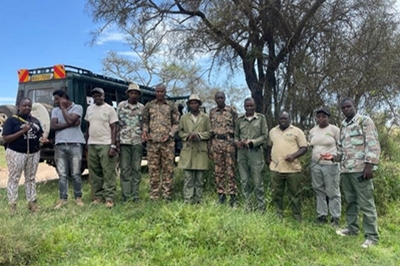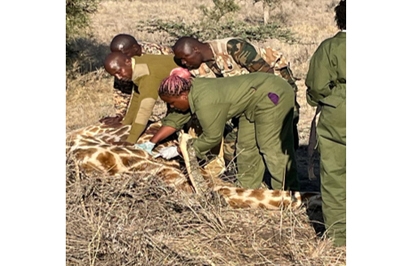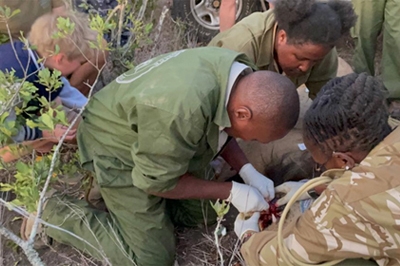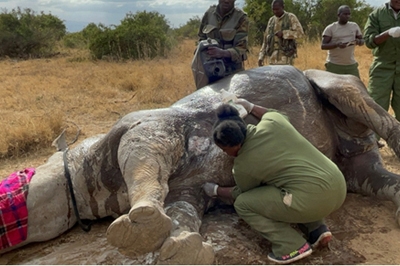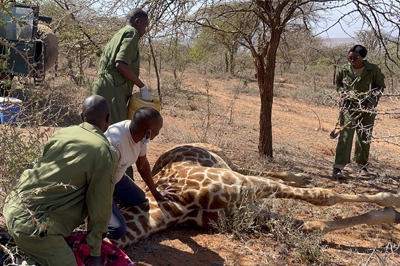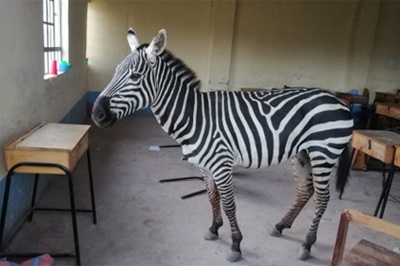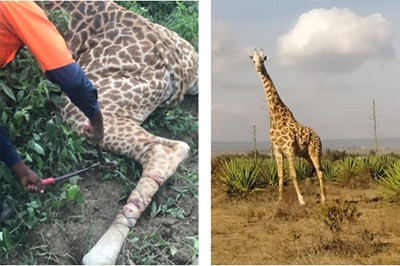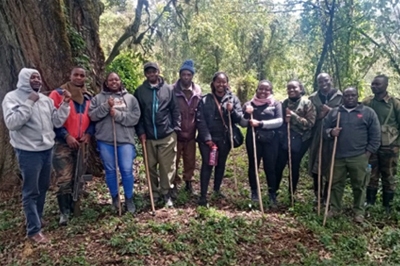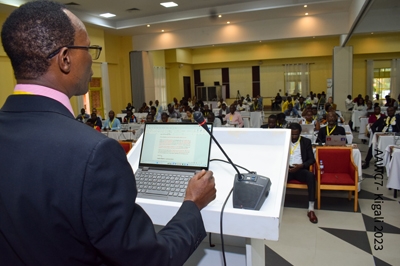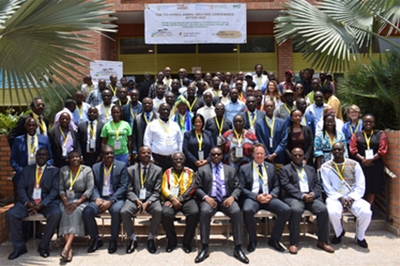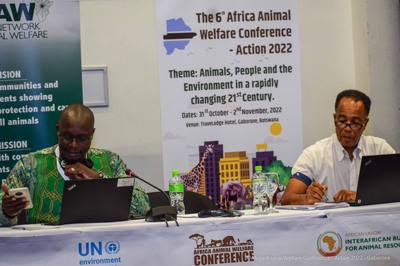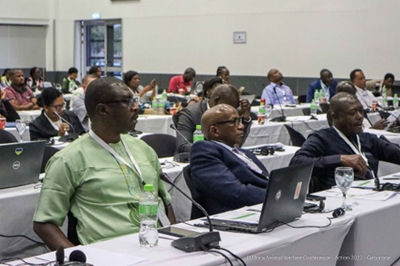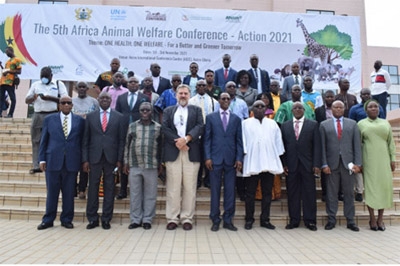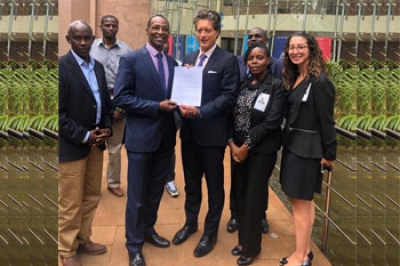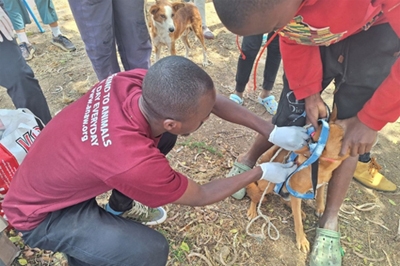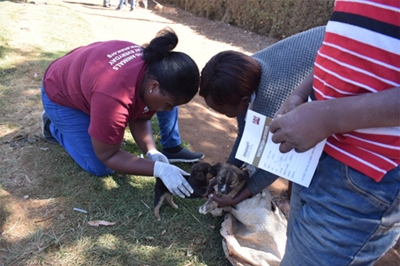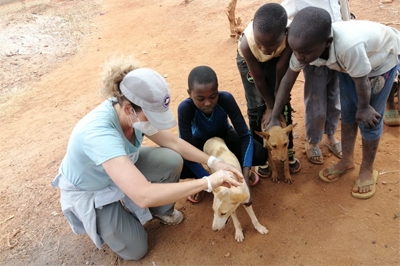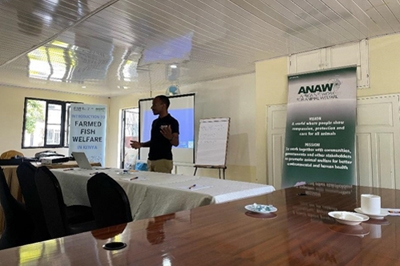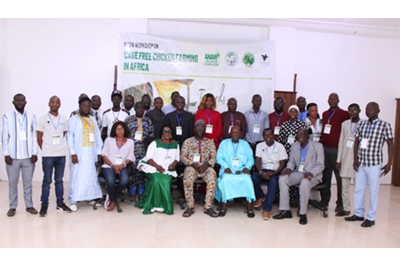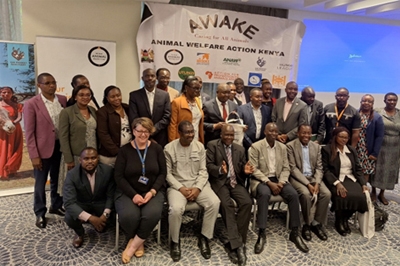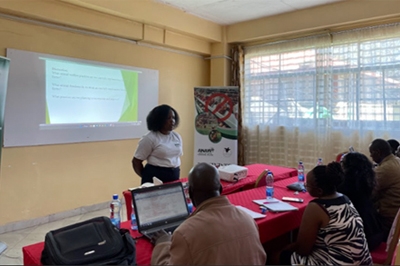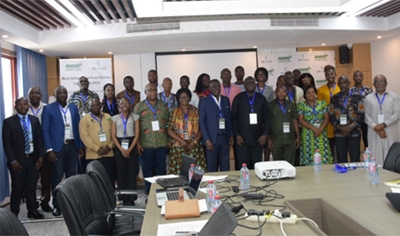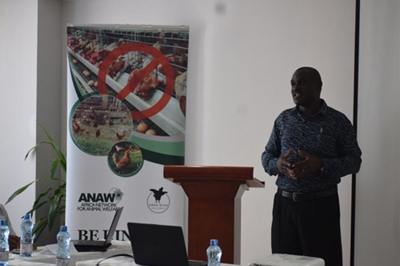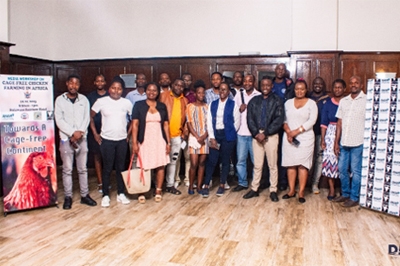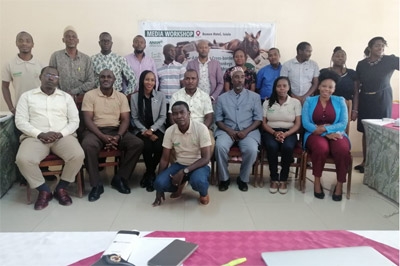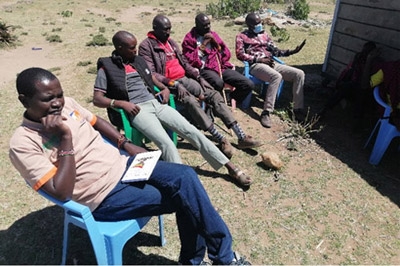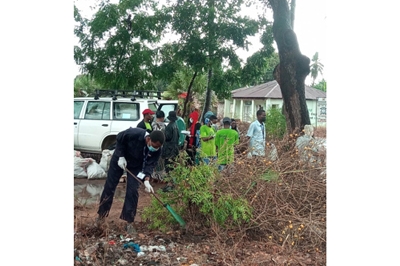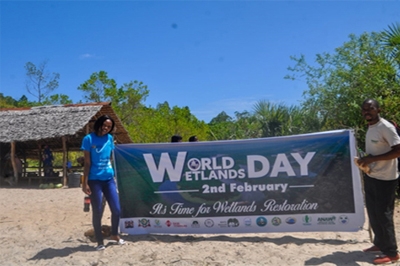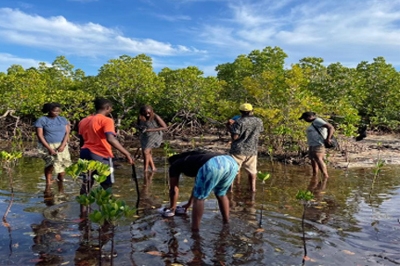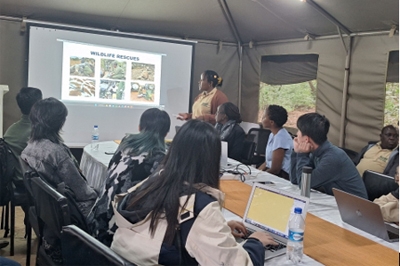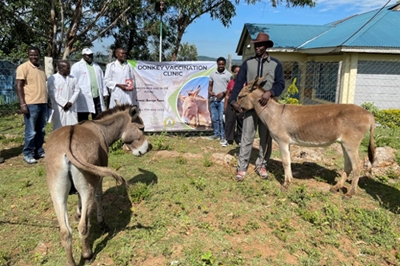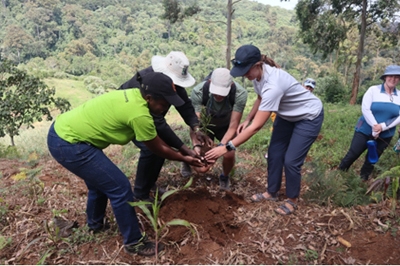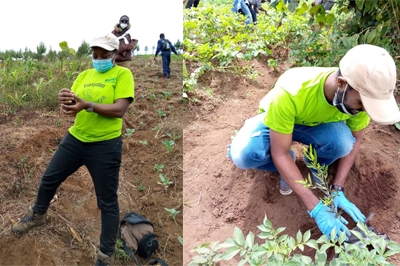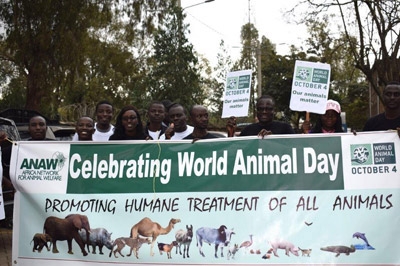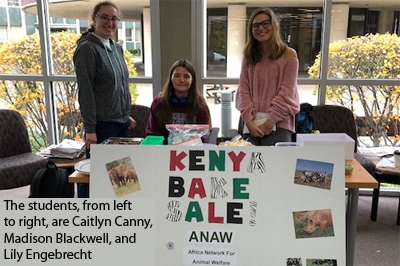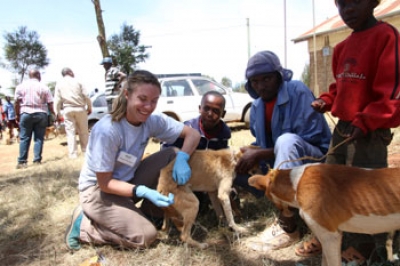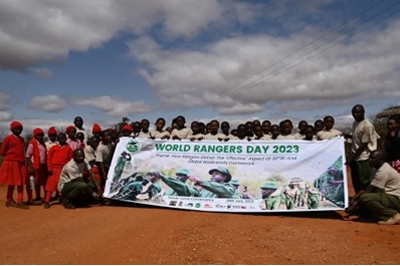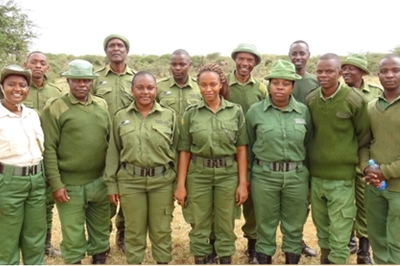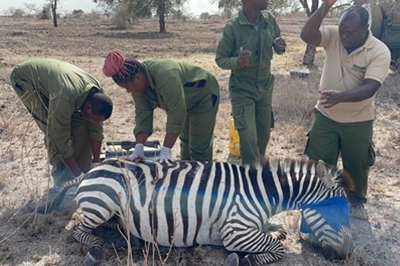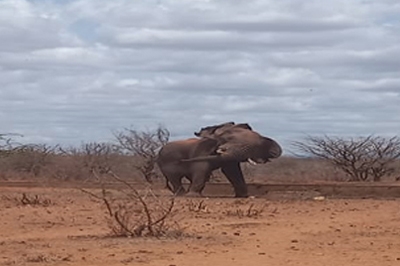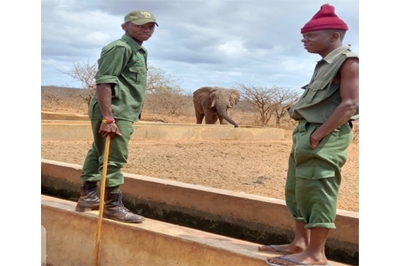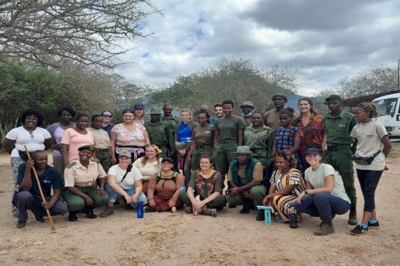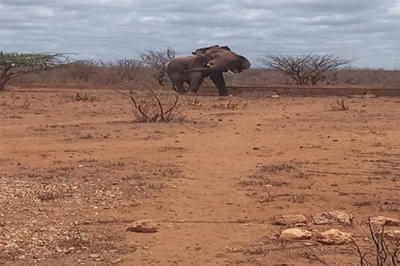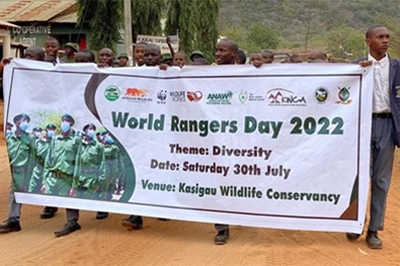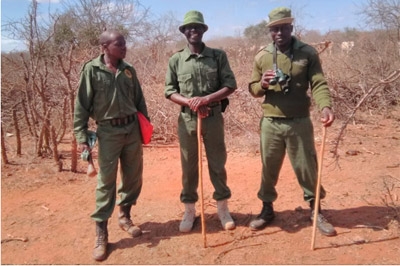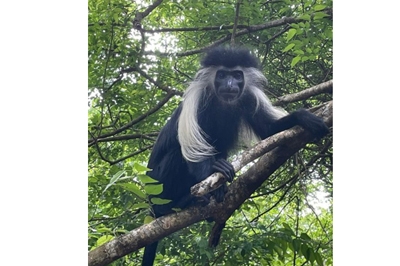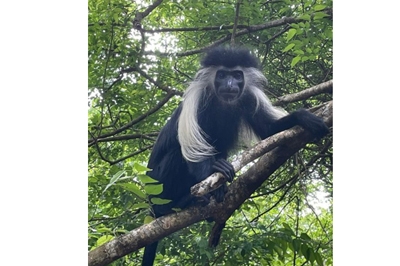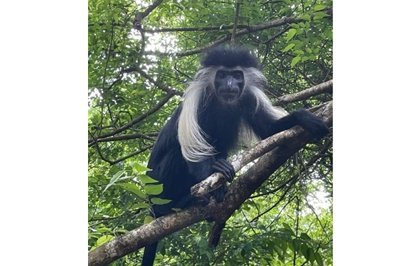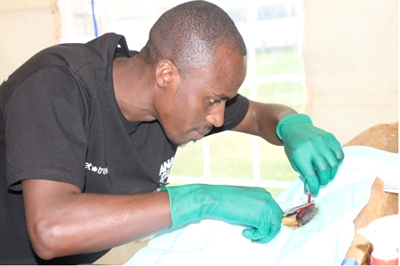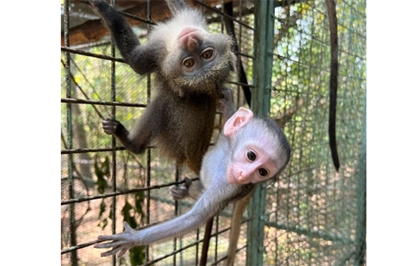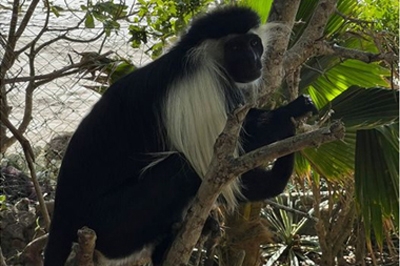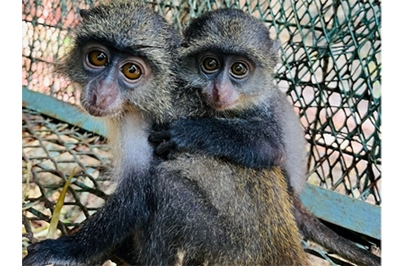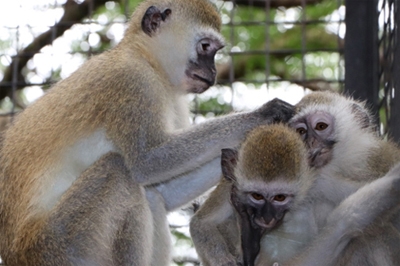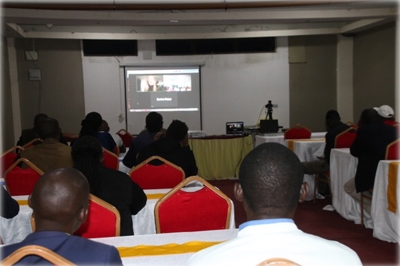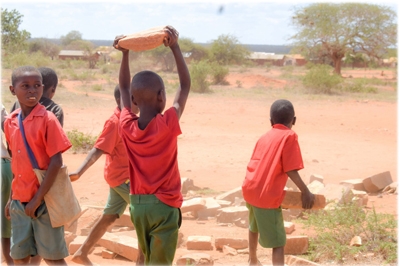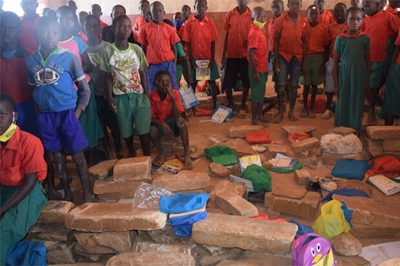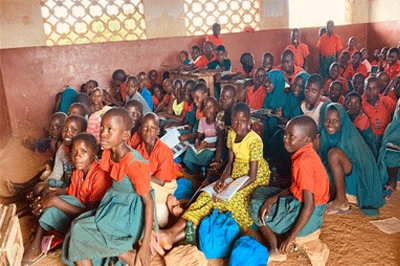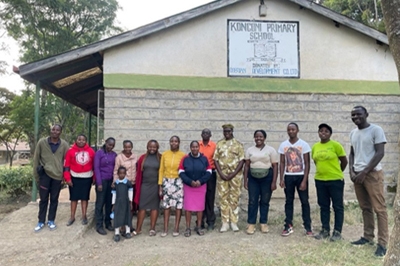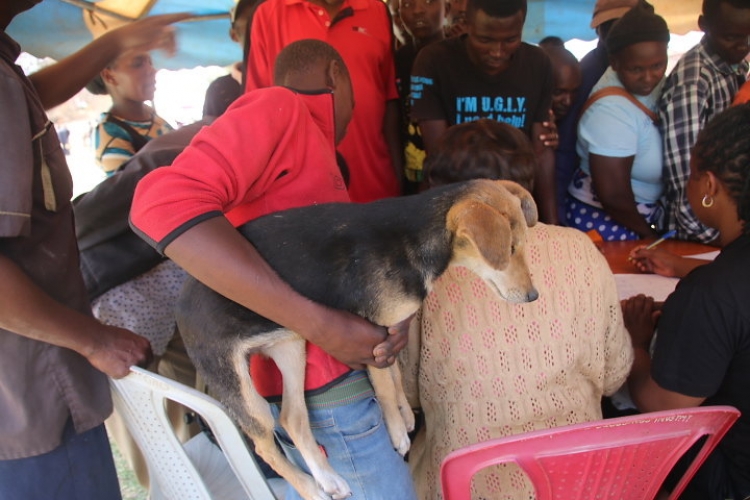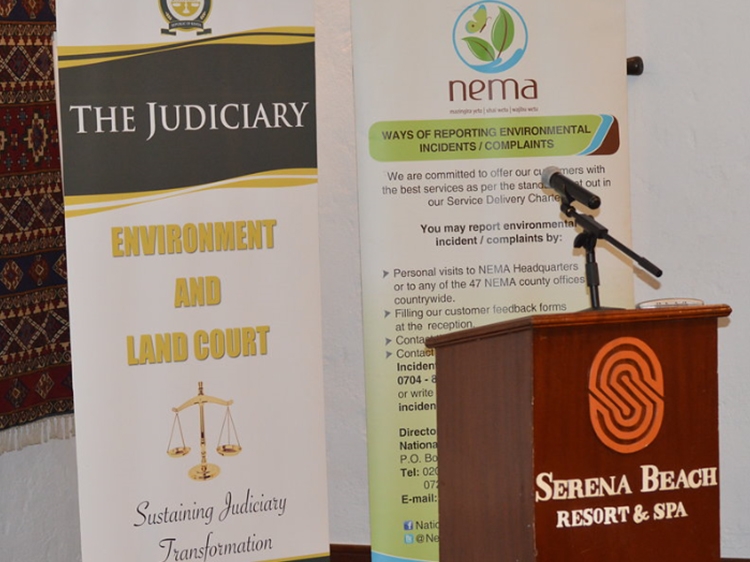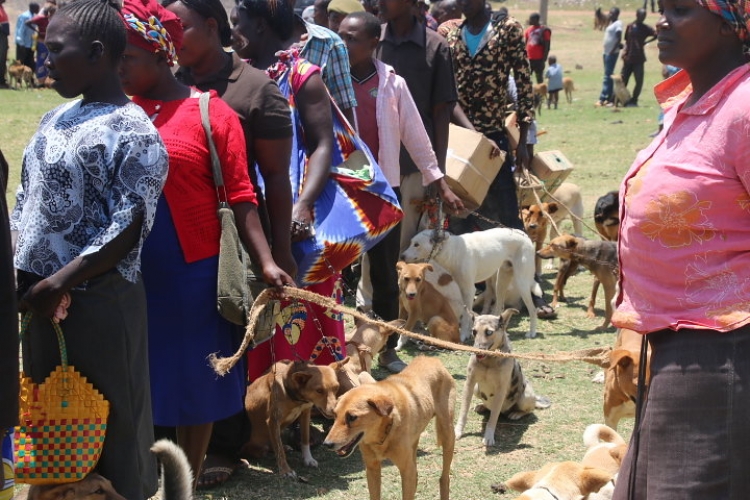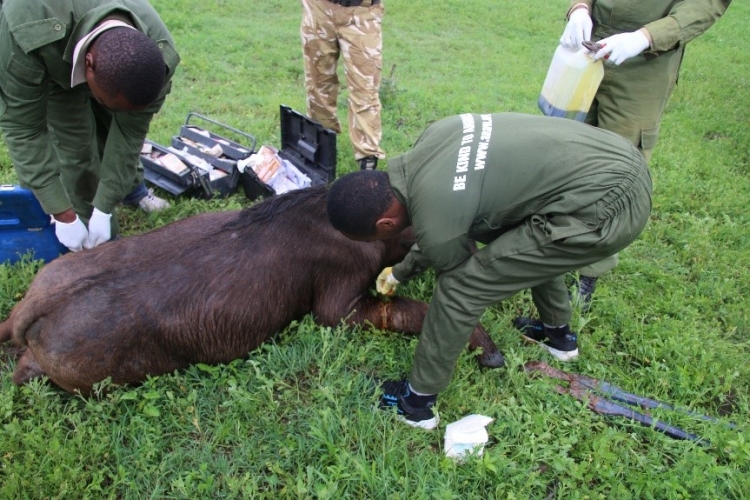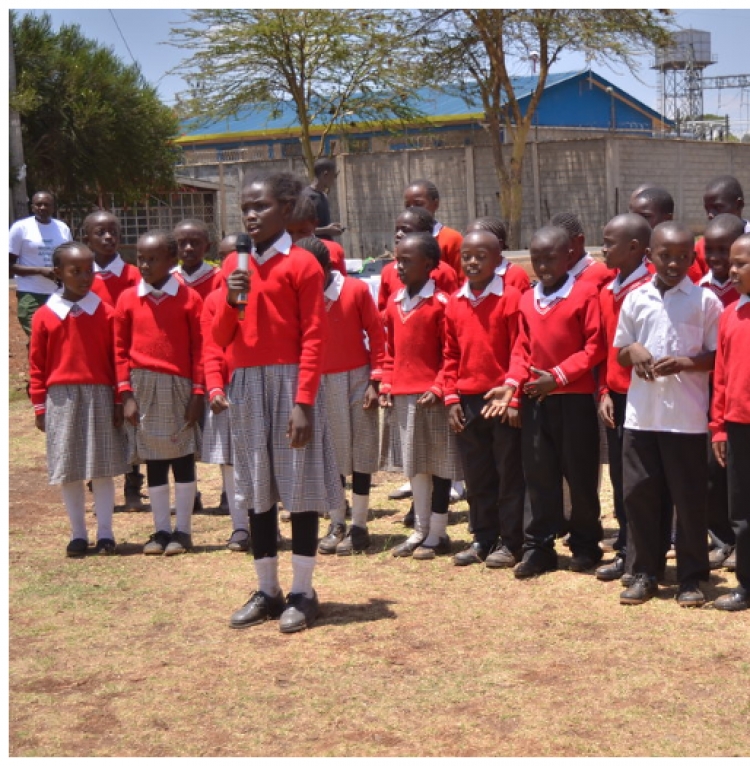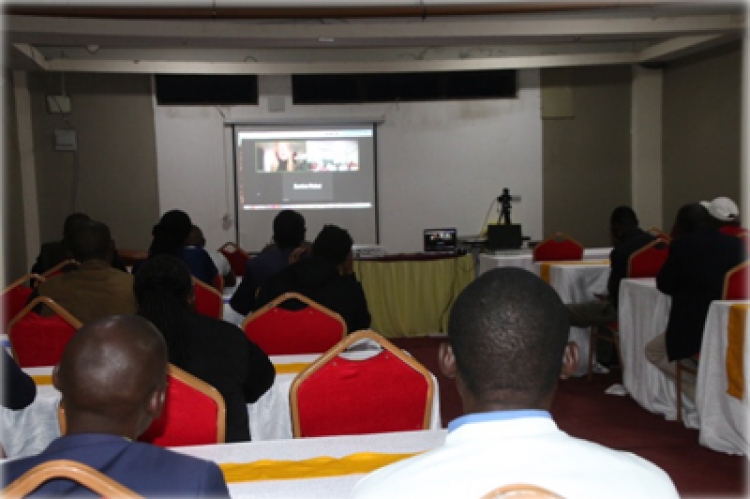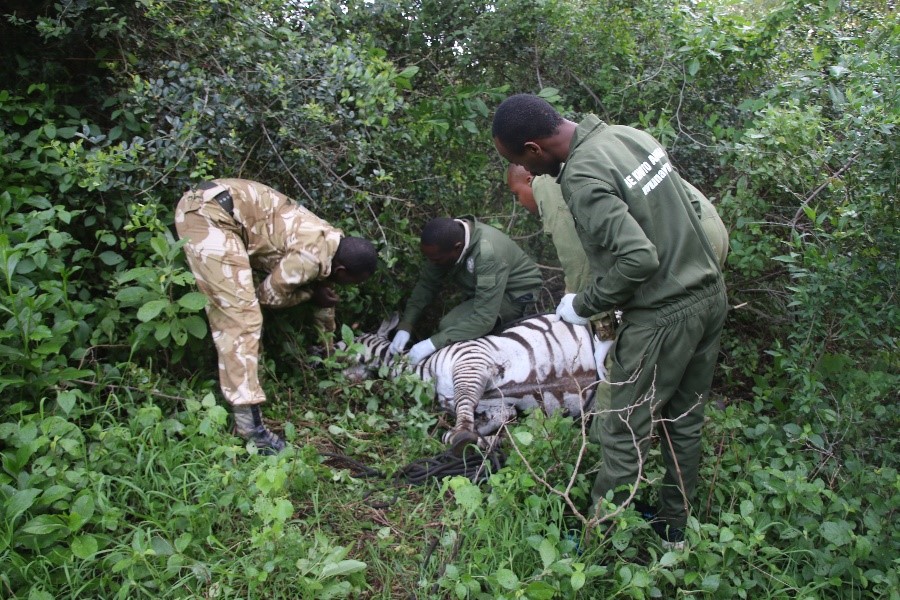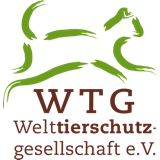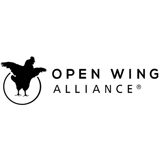Animal Welfare Updates: April - May 2022Primates, An Owl, A Bat and Others Shown Kindness at the Kenyan Coast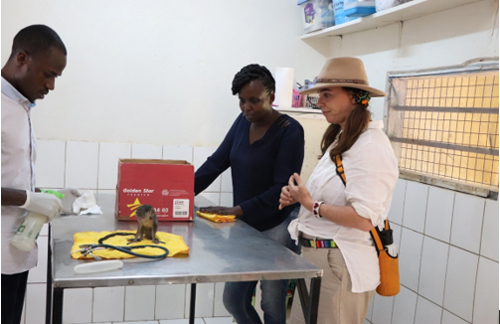
Dr Erick Onsongo (ANAW) Examines a Baby Primate at Colobus Conservation Centre Photo by Colobus Conservation. Diani was the preserve of efficient treatment and health as the veterinarians at The Animal Clinic attended to a number of cases in April and May. During these two months, of April and May, twenty-six (26) animal welfare cases were reported. Of the injured and hurt, 9 were Sykes, 8 were Colobus, and 3 were Vervet monkeys. The animal attended to also included 2 Baboons, 1 Bat and 1 Verreaux’s Eagle Owl. Fortunately, the bat, and one of the Sykes monkeys were treated and released back to the wild.1 infant Colobus was re-united with her mother and 1 infant Sykes entered into long-term rehabilitation. Other animals attended to included 1 bushbaby, and 1 black sparrowhawk. One (1) infant Colobus, 1 bushbaby and 1 Sykes monkey were treated and released back to the wild. Four Animals Rescued in Nakuru, Kajiado and Machakos Counties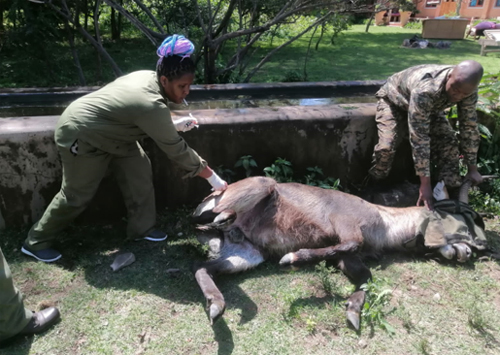
ANAW and KWS Team Attend to a Waterbuck in Naivasha. The gregarious animals can be spotted on the banks of Lake Elementaita and Lake Naivasha grazing in herds as they cannot tolerate dehydration in hot weather. In an effort to protect these species and others including a zebra, a waterbuck and a wildebeest, ANAW and Kenya Wildlife Service (KWS) once again venture out to wildlife habitat in the April and May. Through KWS veterinarian office, an alert was received of an Oryx in distress. The Oryx was reported to have been entangled by a nylon rope at Marula ranch. ANAW in partnership with KWS responded to the incident in April. The female Oryx was entangled by a rope on its horn and right front foot interfering with its mobility. The nylon rope was identified to have come from neighbouring flower farm and blown by wind to the sanctuary. The animal was darted without difficulties and the rope taken out. The animal had no injuries. It was revived and released back to the wild. This was the second time that the team had attended to an oryx caught by a nylon rope in the same area. In April, a case of an injured zebra was reported by the residents of Kipeto area in Kajiado West Sub County. The zebra was reported to have had a cut injury on its right lump which was breeding. ANAW in partnership with KWS vet unit responded to the case and after inspecting the animal, it was found to be in good condition and the wound was healing well hence there was no need of intervening on the animal. In May, ANAW and KWS rescued a snared waterbuck at Sirocco Ranch in Naivasha, Nakuru County. The team removed the snare that was causing the animal’s lameness. In the same month, ANAW rescue team in partnership with KWS vet unit were able to respond to a snared female wildebeest that was sighted near Maanzoni Lodge. With the help of ranch scouts, and Honorary Warden Stephen Tankard, the team were able to successfully locate and dart the animal. The wildebeest had a thick wire tied just below its horns. There being no noticeable damage caused to the skin the team removed the wire and revived the animal, and subsequently released it back to the wild. 359 Animals Vaccinated Against Rabies in Kipeto, Kajiado West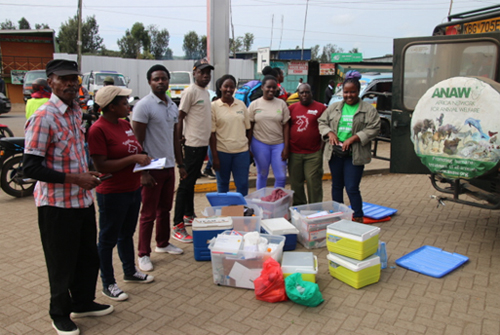
The Team Comprised of ANAW Officials and the Representatives of County Government of Kajiado - Department of Veterinary Services. A strategy to end human death from rabies by 2030 across the country is in place and ANAW in conjunction with selected county governments has been working hard to support this vision in Kenya. In this regard, ANAW, in conjunction with the County Government of Kajiado (Department of Veterinary Services) held a two-day vaccination campaign in Kipeto area in Kajiado West Sub-County of Kajiado County on May 7 and 8, 2022. The campaign mainly targeted the dogs, cats, and donkeys. The dogs in this region play quite an important role as they are used to help in herding the livestock as well as providing protection of the homesteads. There are also many donkeys in the more sparsely populated areas that assist the community to carry water. The exercise directly benefited 359 animals consisting of 71 donkeys, 49 cats and 239 dogs. The animals were vaccinated against rabies, dewormed, treated and provided with parvo-vaccine for the puppies. In addition, the community was educated on animal welfare and proper animal care. The Kajiado West Sub-County veterinarian, Dr. Sammy Koech, requested for further partnership in the provision of anti-rabies vaccination services in the area. Kasigau Guardians Cite Rising Cases of Human-Wildlife Conflict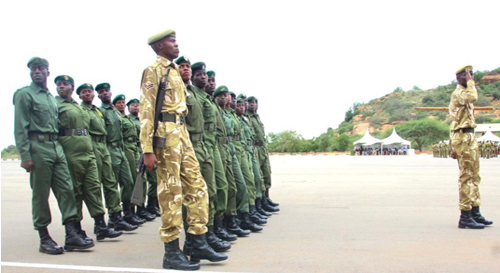
Kasigau Rangers Prep for the Training at Manyani Camp, Taita Taveta County. With the changing climate and steep population growth, cases of human wildlife conflict have been on the rise in the past few years. In Taita Taveta County, Kasigau Guardians carried out security patrols covering 23 patrol areas in April and 22 patrol areas in May. They also received and responded to reported human wildlife conflict cases. Two attacks were reported where five cheetahs attacked and killed a number of goats around Mwaidoma Dam. It was also reported that a herdsman had been attacked by a buffalo. Reports on logging where 50 poles were confiscated were also filed. Moreover, seven rangers from Kasigau Ranch were celebrated as they graduated from a training by Kenya Wildlife Service officials in Manyani. The Taita Taveta Wildlife Conservancy Association (TTWCA) had organized and brought together the rangers and several others from different conservancies. The 3-month training which covered law enforcement, community relations, human rights, mitigation of human-wildlife conflict, application of intelligence and investigative skills was sponsored by the United Nations Development Program (UNDP). The training will enhance surveillance and provide an intelligence lens to the frequent patrols undertaken. Strong Support Props Up Turtle Monitoring Efforts at the Kenyan Coast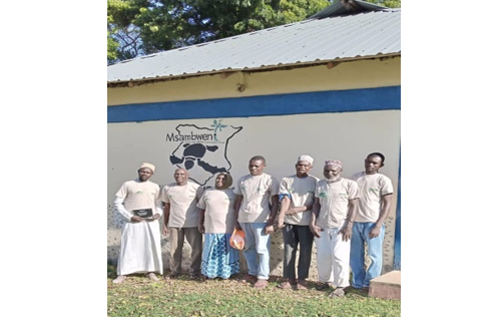
Msambweni Group Standing Outside the Center After a Meeting. Concerted conservation efforts to protect the turtles along the beautiful Kenyan coast has seen the species nest and hatch in safety where possible. Volunteers and monitors protect the endangered sea turtle by searching, tracking, and monitoring nests and ensure that hatchlings scramble to the safety of the oceans. ANAW continues to partner and support the often laborious work on the industrious individuals. ANAW officials accompanied by Olive Ridley Trust (ORP) held a visit and discussions with Msambweni turtle monitoring group, Shimoni turtle monitoring group and Funzi Island turtle monitoring group on May 14, 2022. The team also held discussions with KWS Kisite - Mpunguti Warden Mr. Paul Wambi. At Msambweni, ANAW gave the last batch of the donation towards the renovation of the education centre hall to Msambweni group. The Msambweni team gave an update on the success made from the previous donation. At Kisite-Mpunguti KWS offices, the team met with the warden and Shimoni turtle monitoring team. The warden expressed his gratitude to ANAW for the support of KWS station patrol fuel donation and for the support of turtle conservation in the area through supporting the turtle groups. ANAW held discussions with Shimoni Turtle Volunteers to discuss the group priority areas that they need to help improve their patrol efforts. At Funzi Island, the team met with the Funzi Island Turtle Volunteers and donated two bicycles to support their mobility to different sections of the island and thereby facilitating faster patrols. The ANAW team also donated some branded t-shirts and smart phones to each of the three turtle monitoring groups. African Countries Discuss Welfare at the East Africa Cage-Free Chicken Conference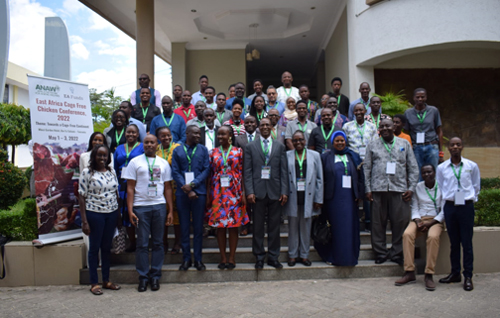
Participants Drawn from Seven African Countries Who Attended the East African Cage Free Chicken Conference 2022, Held in Dar Es Salaam - Tanzania. Representatives of various animal welfare organizations attended the East Africa Cage-Free Chicken Conference which explored cage free chicken in farming practices in East Africa, particularly in Tanzania, Uganda, Rwanda, and Kenya. The conference which was organized by Effective Altruism Fund and ANAW, was deemed crucial as the same deliberations can be translated in Nigeria, Malawi, Zimbabwe, and other countries represented by some participants attending the conference. The meeting discussed the status of caged farming, the legal and policy framework, and consumer perceptions of caged farming systems in the four countries. The conference which focused on battery caged farming, gave an animal welfare perspective to the practise and it was established that caged poultry farming was not humane. Various discussants highlighted that Europe, and the US were phasing out the use of battery cage farming as a result of the ban in this type of poultry farming and the cages were being sent to Africa. The dire issue of caged poultry systems was stated to have intensified industrialized farming and global trade. In these systems, it is observed that chicken grow in small spaces and that diseases were further spread in caged farming more than in free range farming. The echo that indoor cage systems should be replaced by free range systems was loud and reverberating. Donkeys Celebrated as the Country Marks National Donkey Day 2022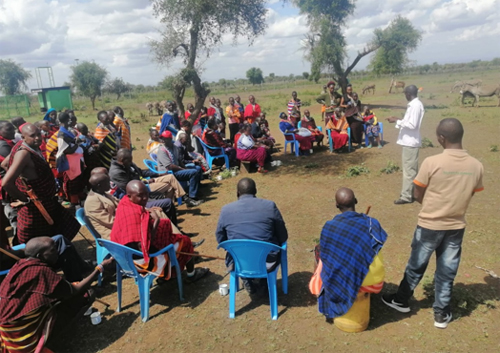
John Melitta (In white shirt), Rombo Area Chief Addressing Donkey Owners During National Donkey Day Celebrations in Olmapinu, Rombo - Kajiado County. Donkey owners and animal welfare practitioners across the country found great meaning in activities undertaken to mark the day on May 17, 2022. ANAW in collaboration with the County Government of Kajiado as well as Brooke East Africa conducted an awareness and sensitization campaign at Olmapinu, Rombo location to mark the National Donkey Day. In total, 82 community members were sensitized and over 300 donkeys were vaccinated and de-wormed. The meeting discussed the status of caged farming, the legal and policy framework, and consumer perceptions of caged farming systems in the four countries. The conference which focused on battery caged farming, gave an animal welfare perspective to the practise and it was established that caged poultry farming was not humane. Various discussants highlighted that Europe, and the US were phasing out the use of battery cage farming as a result of the ban in this type of poultry farming and the cages were being sent to Africa. The dire issue of caged poultry systems was stated to have intensified industrialized farming and global trade. In these systems, it is observed that chicken grow in small spaces and that diseases were further spread in caged farming more than in free range farming. The echo that indoor cage systems should be replaced by free range systems was loud and reverberating. Support Our Work Here's a great way to support Africa Network for Animal Welfare (ANAW) to protect present and future generations of animals. You can do so through the following ways: A Donation A Legacy in Your Will |
||

